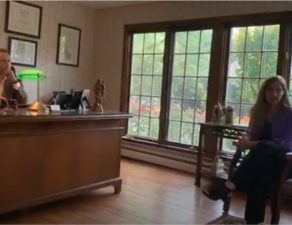Coauthored by Joanna C. Feldman
We’re so glad you asked this question, which shows pervasive misinformation that causes unnecessary struggle. Based on the facts presented, it sounds like your aunt could qualify for Medicaid, which would help pay for aides at home. This is known as community Medicaid.
To be eligible for Medicaid, one cannot have assets greater than an amount set every year. Certain assets do not count. In the case of your aunt, if she has assets greater than $15,150.00 (in 2018), we can employ the technique known as “spousal refusal”, where most of her assets would be transferred to your uncle, who would then refuse to support her (financially, that is).
Spousal refusal pertains to income as well. Your uncle’s income would not necessarily be included when determining your aunt’s income for Medicaid purposes. In New York, if one has income greater than the maximum amount set every year ($842.00 in 2018), one has essentially two choices: use the excess amount to pay for care at home, after which Medicaid will pay for the rest, or enroll in a pooled income trust, whereby the surplus income is deposited into a pooled trust and the money so deposited is then used for the Medicaid recipient’s expenses such as food, utilities, mortgage, taxes, and so on. For example: Say your aunt’s income was $200.00 over the income limit. She could deposit $200.00 into a pooled trust every month and use the money for expenses described above.
Managing the financial and healthcare needs of your loved ones is difficult but speaking with an elder law attorney can ease at least some of the burden. Please contact us to discuss your options. We can be reached at 914-925-1010 or by e-mail at smd@mfd-law.com. You are also encouraged to visit our website at www.plantodayfortomorrow.com. Questions may be submitted to smd@mfd-law.com for a response.









